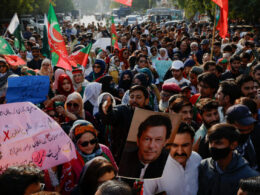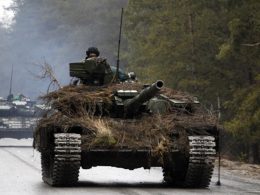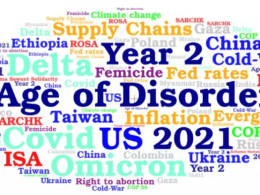Here Paul Murphy MEP looks at the youth riots sweeping Britain, and the disgraceful way the media and political establishment have reported and responded to the events. He investigates the underlying reasons, ways to solve the causes of this outburst, and what lessons it has for left and socialist activists in Ireland.
This article is taken from Paul Murphy’s blog. Read it, share it, and subscribe.
“But it is not enough for me to stand before you tonight and condemn riots. It would be morally irresponsible for me to do that without, at the same time, condemning the contingent, intolerable conditions that exist in our society. These conditions are the things that cause individuals to feel that they have no other alternative than to engage in violent rebellions to get attention. And I must say tonight that a riot is the language of the unheard.”
Martin Luther King, March 14, 1968
Like many in Ireland, I have been intently watching the unfolding of the riots in Britain.
Because all of it is filtered through the lens of the media, the first thing that has struck me is the incredibly superficial nature of the coverage. The rule appears to be that the rioting has to be described as “mindless”. So, the BBC and Sky News race to see who can use the terms “mindless thuggery” and “mindless criminality” more often. Today, David Cameron referred to the “mindless selfishness” of the rioters!
The Law and Order brigade has of course surpassed itself. The right-wing gutter press in England has launched a call to “Sweep scum off our streets” and “Shop a moron”. My fellow MEP, British Tory Roger Helmer, has called for the rioters to be “shot on sight”. There is widespread talk of bringing in the army or using plastic bullets against the rioters. New Labour’s response has been no better, with Ed Miliband calling for “the strongest possible police response”.
Any attempt to look beyond the “mindless criminality” to the reasons for these riots is denounced as amateur sociology or political point scoring. Of course, the riots do not offer any way forward. It is working class people’s homes and cars that are being burnt and many small shopkeepers have had their stores burnt out. It is also giving the establishment an excuse to strengthen the hand of the police – a force that will be used against trade unionists and campaigners in the future.
The root cause of the riots
However, to argue that there are fundamental social roots to this cry of rage and despair should not be particularly controversial. While there is undoubtedly a conscious criminal element taking advantage of the rioting for their own ends, thousands of young people across Britain do not take part in rioting for “mindless” reasons. That is not to say that those who are participating in the rioting are doing it with thought-out political reasons and aims, but that there are deep social roots that explain the reason for this massive outburst.
Some of the youtube interviews with young people participating in or observing the rioting give an insight. A repeated theme is that of young people having no future. They have no prospect of a job and they can’t afford the goods that are advertised to them. The other feature is anger at police harassment, unfair stop-and-search policies, and deaths in police custody (almost 100 in the last five years), despite all of the commentary to the effect that police relations with these communities have improved.
The incident that immediately provoked the riot was the killing of Mark Duggan by the police. Despite the initial claims of the police that he was killed in a firefight, it has now been admitted by the Independent Police Complaints Commission that he did not fire his gun. The two shots that were fired were both fired by the police. A protest was led by Mr. Duggan’s family to the police station demanding an explanation for his death. At this protest, a 16 year old young woman appears to have been brutally treated by the police, which proved to be the trigger for the rioting.
With cutbacks to social services, which have been carried out by New Labour and worsened by the Tory/Lib Dem coalition, communities have been torn apart. Young people have been hit particularly hard by this and by the impact of the economic crisis generally. There are almost a million unemployed people in Britain with young people in London face unemployment of 23%, with much higher rates in the inner cities areas across Britain. The areas that have seen the greatest amount of rioting also face the highest levels of youth unemployment – this is no coincidence! Any prospect of going to college has been hit hard by the abolition of the EMA grant and the raising of tuition fees to £9,000 per year. Youth services have also been drastically cut – by 75% in Tottenham.
The riots clearly involve young people from all ethnic groups. However, racism against black young people and other ethnic minorities is also a factor. It is a fact that all ethnic minorities in Britain still earn less, on average, than white people, they suffer from higher than average rates of poverty and they often face the brunt of police harassment. From 2005 to 2009 police searches of Asian people increased 84% and black people by 51%.
The police and the trade unions
While increased police repression together with a natural diminishing of the numbers involved may bring the situation under control in the coming days, it will not deal with these underlying issues, which are likely to worsen rather than improve. It means that the potential for further flare-ups and riots is inherent in the situation. While the calls by many working class people for increased police presence on the streets to stop the violence are understandable, more police on the streets will not ultimately solve this situation. This is demonstrated by the fact that it was the police action in killing Mark Duggan that provoked the riots in the first place. Instead of simply calling for increased police numbers, a key question is what kind of police force should we have – there is a need for a police force, purged of racist elements, that is democratically controlled by and accountable to the communities it is supposed to be working on behalf of.
It also underlines the crucial role for a lead to be given by the trade union and workers’ movement in Britain. By leading a major campaign against cuts and unemployment, the trade union movement could point a way forward to young people who want to fight back against the attacks that they are suffering from. More immediately, there would appear to be a need for the trade unions and community activists to initiate democratically accountable committees to organise defence of people’s homes and communities as well as campaigning against the cuts to vital services. In the absence of that, one of the dangers that exists is the far-right posing themselves as the defenders of predominantly white areas and trying to turn the riots into a race issue.
Could this happen here?
One of the questions people will be asking in Ireland is whether these kind of events can happen here? I think it’s the case that there is a larger proportion of young people in Britain completely alienated from society than in Ireland. However, it’s also true that the same basic conditions in terms of youth unemployment and cuts to social services, also exist in Ireland. There are tens of thousands of young people with no real prospect of a job, including thousands living in extremely deprived areas of the major cities. So the basic combustible material for these inchoate explosions of rage does exist in Ireland.
A crucial task facing socialists is to organise amongst these young people on the key questions of youth unemployment, cutbacks and generally fighting for a future for young people. In that way, the justified anger and rage can be channelled into a movement for fundamental socialist change, to use the vast resources that exist in our society not to bailout the bankers and developers, but to provide jobs, homes and services for all.












